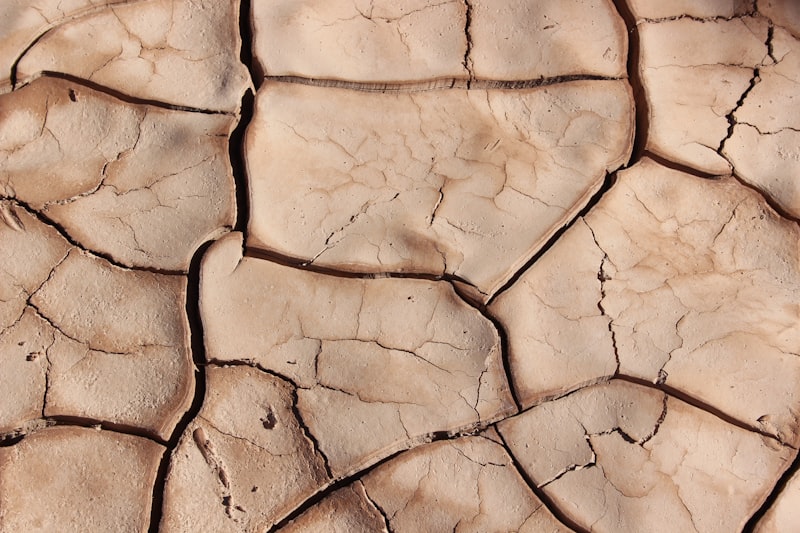Firstly, staying hydrated is key. Our bodies need water to function properly, and our mouths are no exception. When you’re dehydrated, your saliva production decreases, leading to dryness. So, sip water throughout the day to keep your mouth moist and happy.
Next up, watch what you eat. Certain foods, especially salty or spicy ones, can exacerbate dry mouth symptoms. Opt for hydrating foods like fruits and vegetables, and consider sugar-free gum or candies with xylitol to stimulate saliva flow.
Furthermore, did you know that certain medications can cause dry mouth as a side effect? Yep, it’s true. If you’re taking any prescriptions or over-the-counter meds that list dry mouth as a potential issue, talk to your healthcare provider. They may be able to adjust your dosage or recommend an alternative that’s gentler on your saliva production.
Another tip: avoid tobacco and alcohol. These substances can dry out your mouth and contribute to a host of other oral health problems. Cutting back or quitting altogether can significantly improve your mouth’s moisture levels and overall health.
Lastly, maintain good oral hygiene. Brushing and flossing regularly not only keep your teeth and gums healthy but also help prevent dry mouth-related issues like tooth decay and bad breath. Consider using a fluoride toothpaste and a moisturizing mouthwash to further combat dryness.
Preventing dry mouth involves simple lifestyle adjustments such as staying hydrated, eating right, monitoring medications, avoiding harmful substances, and keeping up with oral hygiene. By incorporating these habits into your daily routine, you can say goodbye to dry mouth and hello to a happier, healthier mouth.
Hydration Hacks: Mastering the Art of Moisture for Healthy Mouths
Wondering how to keep your mouth healthy and hydrated? It’s more than just sipping water throughout the day; mastering the art of moisture can significantly impact your oral health. Let’s dive into some hydration hacks that will leave your mouth feeling fresh and healthy.
Firstly, water is your best friend. Not only does it keep you hydrated overall, but it also helps to rinse away food particles and bacteria that can lead to plaque buildup and bad breath. Aim to drink at least eight glasses a day, and more if you’re physically active or live in a dry climate.
Secondly, consider incorporating hydrating foods into your diet. Crisp fruits and vegetables like apples, celery, and carrots have high water content and stimulate saliva production, which is crucial for neutralizing acids and protecting tooth enamel.
Another great hack is to use a humidifier, especially at night. This device adds moisture to the air, preventing dry mouth that can occur during sleep and reducing the risk of oral health issues like gum disease.
Additionally, watch your caffeine and alcohol intake, as these can contribute to dehydration. If you indulge, make sure to balance it with extra water consumption.
For those on the go, sugar-free gum can be a lifesaver. Chewing stimulates saliva flow, helping to wash away food debris and maintain moisture levels in your mouth.
Lastly, don’t forget about mouthwash. Opt for an alcohol-free variety that includes ingredients like xylitol or fluoride to help keep your mouth hydrated and protected between brushings.
Mastering these hydration hacks isn’t just about a fresh mouth—it’s about maintaining optimal oral health. Start implementing these tips today and feel the difference a well-hydrated mouth can make!
Unlocking the Secrets to Banish Dry Mouth: Practical Tips and Tricks
First off, hydration is key. Think of your mouth like a garden—if it doesn’t get enough water, it dries up. So, sip on water throughout the day to keep your mouth moist and happy. Not a fan of plain water? No problem! You can opt for sugar-free drinks or even chew sugar-free gum to stimulate saliva production. Saliva is your mouth’s natural defense against dryness, so get it flowing!
Next, watch what you eat. Certain foods and drinks can worsen dry mouth, like caffeine and alcohol. They can leave your mouth feeling parched, so try cutting back and see if it helps. Instead, reach for water-rich fruits and veggies, like watermelon or cucumber, to give your mouth that extra hydration boost.

Now, let’s talk about oral hygiene. Brushing and flossing aren’t just for a sparkling smile—they can also help combat dry mouth. Clean teeth and gums mean fewer bacteria hanging around, which can lead to a fresher mouth and less dryness. Don’t forget to use a fluoride toothpaste and consider using a mouthwash that’s alcohol-free to avoid further drying out your mouth.
Feeling stressed? It might be contributing to your dry mouth. Stress can mess with your body’s natural processes, including saliva production. Try incorporating relaxation techniques into your daily routine, like deep breathing or yoga, to help calm your mind and keep dry mouth at bay.

Lastly, if dry mouth persists despite these tips, it might be time to talk to your dentist or doctor. Sometimes, medications or underlying health conditions can cause dry mouth, and they can help pinpoint the root cause and offer solutions tailored to you.
Remember, banishing dry mouth is all about finding what works best for you. With a few tweaks to your daily habits and a bit of awareness, you can kiss dry mouth goodbye and say hello to a happier, healthier mouth. Ready to take charge? Let’s keep those smiles bright and hydrated!
Stay Moisture-Savvy: Essential Strategies to Prevent Dry Mouth
Imagine your mouth as a delicate garden in need of constant hydration to bloom. Just like plants need water to thrive, your mouth thrives on moisture to stay healthy and comfortable. When the flow of saliva decreases, dry mouth sets in, leaving you parched and vulnerable to oral health issues.
One of the key strategies to prevent dry mouth is to sip water regularly throughout the day, much like giving your garden a steady drink. Water helps maintain saliva production, keeping your mouth hydrated and flushing away harmful bacteria that thrive in dry conditions.
Avoiding caffeine and alcohol can also make a significant difference. These beverages can be like the scorching sun to your oral garden, drying out your mouth even further. Opt instead for herbal teas or water infused with natural flavors like cucumber or mint to keep your mouth refreshed without the dehydration risks.
Another vital tactic is to use saliva-stimulating products. Think of these as fertilizer for your oral garden—products like sugar-free gum or lozenges can help stimulate saliva production, providing natural moisture and easing discomfort.
Don’t forget the importance of oral hygiene in combating dry mouth. Just as you weed and prune your garden to promote growth, brushing and flossing regularly help remove plaque and debris that can exacerbate dryness. Choose a toothpaste formulated for dry mouth to further enhance moisture retention.
Lastly, consider the environment around you. Dry, arid conditions can quickly parch your mouth, much like how excessive heat stresses plants. Using a humidifier in your home or workplace can add moisture to the air, benefiting both your oral health and overall comfort.
By implementing these moisture-savvy strategies into your daily routine, you can effectively manage and prevent dry mouth, ensuring your oral garden remains lush and thriving.
Beyond Water: Surprising Remedies to Keep Dry Mouth at Bay
Imagine waking up parched, with a mouth as dry as a desert. It’s not just uncomfortable; it can lead to bad breath and even dental issues if left unchecked. So, what can you do beyond chugging glasses of water?
-
Sugar-Free Gum: Chewing sugar-free gum stimulates saliva production, which naturally moisturizes your mouth. It’s a simple trick that can be surprisingly effective throughout the day.
-
Humidifier Use: If dry air is the culprit, especially in winter or in air-conditioned spaces, using a humidifier can add moisture to the air, keeping your mouth and throat more comfortable.
-
Saliva Substitutes: There are over-the-counter saliva substitutes available, often in spray or gel form. These mimic the natural properties of saliva, providing relief and moisture.
-
Avoiding Caffeine: Caffeine can contribute to dry mouth by dehydrating the body. Cutting back on coffee and tea, especially in excessive amounts, might help reduce symptoms.
-
Breathing Through Your Nose: Breathing through your nose instead of your mouth can help keep saliva where it’s needed most—inside your mouth!
-
Cinnamon: Cinnamon has natural antibacterial properties and can stimulate saliva production. Sprinkle it on food or brew it into a tea for a tasty remedy.
-
Stay Hydrated with Fruits: Some fruits, like watermelon and cucumber, have high water content and can help hydrate your body naturally, reducing the likelihood of dry mouth.
-
Modify Medications: If dry mouth is a side effect of medications you’re taking, speak with your healthcare provider. Sometimes adjusting the dosage or switching to an alternative medication can alleviate symptoms.
-
Oil Pulling: This ancient practice involves swishing oil (like coconut or sesame) in your mouth for several minutes, which can help lubricate and cleanse the mouth.
-
Regular Dental Check-Ups: Lastly, regular visits to your dentist can help detect and manage dry mouth early on, preventing more serious dental issues.
Dry mouth doesn’t have to disrupt your daily life. By incorporating these surprising remedies into your routine, you can keep your mouth comfortable and your smile bright.
Moisture Matters: Understanding the Impact of Dry Mouth on Your Health
Imagine your mouth as a bustling ecosystem where saliva plays the role of a natural protector and healer. Saliva isn’t just water; it’s a complex mix of enzymes, antibodies, and proteins that fight off bacteria and aid in digestion. When you have dry mouth, this protective shield weakens, leaving your teeth and gums vulnerable to decay and infections.
Beyond dental woes, dry mouth can make everyday activities like chewing and swallowing uncomfortable. It might even affect your sense of taste, making foods seem less flavorful. Ever had that cotton-mouth feeling after a long night’s sleep or a stressful day? That’s your body’s way of telling you it needs more moisture.
Various factors can contribute to dry mouth, from medications to medical conditions like diabetes or autoimmune diseases. Lifestyle habits like smoking or excessive caffeine intake can also dry out your mouth over time. Understanding these triggers can help you take proactive steps to maintain moisture balance and improve your oral health.
So, what can you do to combat dry mouth? Hydration is key—drink plenty of water throughout the day. Chewing sugar-free gum or sucking on sugar-free candies can stimulate saliva production. Regular dental check-ups are crucial to catch any issues early. By taking these small steps, you can ensure your mouth stays moist and healthy, allowing you to savor all of life’s flavors without discomfort.
Combatting Dry Mouth: Expert Tips for Lasting Relief and Wellness
One of the most crucial steps in combating dry mouth is staying hydrated. Drinking plenty of water throughout the day not only keeps your body hydrated but also helps maintain moisture in your mouth. Think of it like giving your mouth a refreshing drink to combat that dry sensation.
Another effective strategy is to chew sugar-free gum or suck on sugar-free candies. This stimulates saliva production naturally, which helps to keep your mouth moist and comfortable. It’s like giving your mouth a gentle workout to produce its natural defense against dryness.
Choosing the right oral care products can also make a significant difference. Look for toothpaste and mouthwash specially formulated for dry mouth relief, often containing ingredients like xylitol or fluoride to help protect teeth while providing moisture.
Adjusting your diet can play a role too. Avoiding salty or spicy foods that can further dry out your mouth, and opting for hydrating fruits and vegetables can contribute to overall mouth health. It’s like giving your mouth a balanced diet that supports its natural moisture balance.
Lastly, consider using a humidifier in your bedroom at night. This helps to add moisture to the air you breathe while you sleep, which can prevent waking up with a dry mouth feeling. It’s like creating a comfortable environment that supports your mouth’s natural hydration levels.
Frequently Asked Questions
Are there specific medications that cause dry mouth, and how can it be managed?
Learn about medications that commonly cause dry mouth and effective management strategies.
What lifestyle changes can help prevent dry mouth?
Learn about effective lifestyle changes to prevent dry mouth, including staying hydrated, avoiding tobacco and alcohol, using a humidifier, and practicing good oral hygiene habits.
What are the common causes of dry mouth?
Discover the common causes of dry mouth with our concise FAQ. Learn about factors such as medications, dehydration, and medical conditions that contribute to this condition. Understand how lifestyle habits and certain health treatments can affect saliva production, leading to dry mouth symptoms.
What are the effects of untreated dry mouth?
Discover the significant impacts of untreated dry mouth, from dental issues like cavities and gum disease to discomfort in speaking and swallowing. Learn how addressing dry mouth promptly can improve oral health and overall well-being.
How can I prevent dry mouth at night?
Discover effective ways to prevent dry mouth at night with simple strategies. Learn about hydration techniques, mouth care routines, and lifestyle adjustments that can alleviate nighttime dryness. Improve your sleep quality with practical tips to maintain oral health throughout the night.


